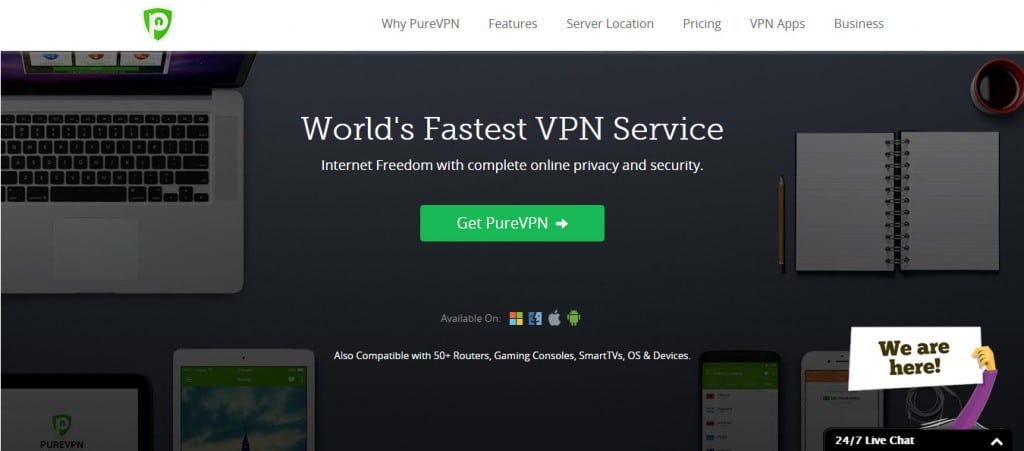
What VPN do we recommend for iOS and Android devices?
![]() ExpressVPN: Very fast and easy to use. The recommended option for people who aren’t technology experts.
ExpressVPN: Very fast and easy to use. The recommended option for people who aren’t technology experts.
![]() NordVPN: Reliable, complete and easy to use. One of the most popular options currently.
NordVPN: Reliable, complete and easy to use. One of the most popular options currently.
![]() Surfshark: Cheap, unlimited connections, very complete and excellent performance. A good alternative to large VPN providers.
Surfshark: Cheap, unlimited connections, very complete and excellent performance. A good alternative to large VPN providers.
![]() Ivacy: Good performance at a very low cost. The recommended option if you want a cheap but high-quality VPN.
Ivacy: Good performance at a very low cost. The recommended option if you want a cheap but high-quality VPN.
This article is based on our years of experience using VPNs in China, where the Great Firewall severely restricts normal Internet use.
What is a VPN and why would I need one?
A Virtual Private Network – or VPN – allows you to send and receive data over the internet as if you were directly connected to a private network. However, we don’t need to go into the technical details. Below, you will find the main uses of a VPN:
- Getting around internet censorship in China, Iran, Vietnam or other countries that restrict access to a part of the internet.
- Sending sensitive information (like banking information) over an encrypted connection. This is very important if you connect to public networks.
- Access to services that are only available in some countries, such as accessing the local catalog of streaming platforms such as Netflix, BBC iPlayer or Amazon Prime Video.
- Creating your own VPN allows your employees to access your company’s private network, even if they are not physically connected to it.
Things to keep in mind for a VPN for Android, iPhone, or other iOS devices
- Reliability and stability: These are probably the most important features and are where the majority of the VPNs on the market don’t make the cut (most of all the free ones). For a VPN to be useful, the connection needs to be fast, without breaks in connection, and secure.
- Applications: Have you ever tried to configure a VPN account on your smartphone? I did it and it was not a pleasant experience! It doesn’t matter if your phone is running Android or iOS, it is always too complicated. You are going to have to input large codes and change them every time that you want to adjust the connection of the VPN. A good VPN offers applications for both platforms. All you have to do is download the application, sign in, and… that’s it! The application also has to allow you to configure the VPN connection regardless of where you are (for example, in the event that you want to change the server).
- Simultaneous connections: This aspect is very useful, as it means that you don’t need to disconnect the VPN from your laptop every time that you want to use it on your smartphone. Normally, 3 simultaneous connections tend to be enough.
- Encryption protocols: Many VPN providers only offer one protocol for Android or iOS devices, which is normally the L2TP protocol. Having the option of choosing between multiple encryption protocols (L2TP/IPsec, PPTP, OpenVPN) is important to be able to adapt your VPN to your needs (security or speed). This might sound too technical to you, but you don’t need to understand the details and the differences between the different protocols. The only thing that you have to know is that normally, the best protocols are OpenVPN, WireGurad, and Lightway (or similar protocols), which are the only ones that work in China. L2TP tends to be very slow, and PPTP is insecure.
The best VPNs for mobile devices
Below is the list of VPNs that we recommend for Android and iOS (iPhone, iPad) devices. To evaluate this list, we have used the following criteria:
- They are reliable and stable
- They work in China
- They allow streaming with Netflix and other platforms
- They have easy-to-use apps
- They are secure
1. ExpressVPN

- Reliability and stability: Very reliable and stable
- Applications: Android, iOS, Windows Phone and BlackBerry
- Simultaneous connections: Up to 5
- Android encryption protocol: Lightway, OpenVPN (Android 5 or greater)
- IOS encryption protocol: Lightway, OpenVPN UDP/TCP, IKEv2 and IPsec (iOS 12 or greater)
Exclusive discount: 3 months for free with the annual suscription
The fastest on the list, easy to use, a large number of servers in multiple countries and excellent after-sale service.
Price
2. NordVPN

- Reliability and stability: Reliable and stable
- Applications: Android, iOS, Windows Phone
- Simultaneous connections: Up to 6
- Android encryption protocols: OpenVPN, IPSec/IKEv2 (Android 6.0 or greater)
- iOS encryption protocols: OpenVPN, IPSec/IKEv2 (iOS 11 or greater)
Exclusive discount: 58% discount on the annual suscription
Easy to use, server count, simultaneous connections and security
Price
3. Surfshark

- Reliability and stability: Reliable and stable
- Applications: Android, iOS, Windows Phone
- Simultaneous connections: Unlimited
- Android encryption protocols: IKEv2, OpenVPN, WireGuard (Android 5.0 and above)
- IOS encryption protocols: IKEv2, WireGuard (iOS 10.3.3 and above)
Exclusive discount: get 83% off on the annual suscription
Price, easy to use, simultaneous connections and extra options
Streaming in some countries
4. VyprVPN

- Reliability and stability: Very reliable and stable
- Applications: Android, iOS, Windows Phone and Blackphone
- Simultaneous connections: Up to 5
- Android encryption protocols: OpenVPN™, Chameleon™ (Android 4.0 or greater)
- iOS encryption protocols: IPsec/IKEv2, OpenVPN™, Chameleon™, WireGuard® (iOS 13 or greater)
Exclusive discount: 45% discount on the annual plan
The most secure VPN on the list, well-designed apps, cheap annual plan and its own servers
Connectivity in China
5. Ivacy

- Reliability and stability: Very reliable and stable
- Applications: Android, iOS and Windows Phone
- Simultaneous connections: Up to 5
- Android encryption protocols: OpenVPN (Android 5.0 or greater)
- iOS encryption protocols: IPsec, IKEv2 (iOs 11 or greater)
Coupon code: saporedicina ($25 off on the 5-year plan)
Cheap, easy to use, dedicated IPs, extra options
Server count and locations
6. PureVPN

- Reliability and stability: Stable
- Applications: Android, iOS and Windows Phone
- Simultaneous connections: Up to 10
- Android encryption protocols: OpenVPN, IKev2/IPSec, SSTP (Android 5.0 or greater)
- iOS encryption protocols: IPSec, IKEv2, OpenVPN (iOS 12.3 or greater)
Exclusive discount: 82% discount on the bi-annual plan
Very complete, very low price, can be personalized, easy to use, and a large number of servers in different countries
Sometimes not very reliable, and poor after-sale service
7. Strong VPN

- Reliability and stability: Reliable and stable
- Applications: Android, iOS and Windows Phone
- Simultaneous connections: Unlimited in the same network
- Android encryption protocols: WireGuard, IKEv2, OpenVPN (Android 5.0 or greater)
- iOS encryption protocols: WireGuard, IKEv2, IPsec (iOS 11 or greater)
Very robust and reliable over time, servers with dynamic IP addresses and good technical service
Number of servers and services that are inferior to those of other VPNs
Frequently asked questions
There isn’t one VPN that’s better than the others in all respects. If your priority is speed and reliability, then maybe ExpressVPN is for you, but if you are mainly looking for security (even if you lose out on speed), for example, your option might be VyprVPN. In any event, all of the services we review here are ideal for Android devices and offer good guarantees in terms of reliability and security.
As is the case with Android, there isn’t one VPN that’s better than the others in all respects. The VPNs reviewed here work perfectly on devices running iOS. However, be careful if you want to use it in China, as not all iOS apps support the OpenVPN protocol (the only protocol that works in China).
Despite the fact that we haven’t tested out the hundreds of VPN providers on the market today, the VPN that we have tried that generally offers the fastest speed (even on poor connections) has been ExpressVPN.
There are a number of VPN services, but out of the ones we’ve tested and analyzed to date, VyprVPN appears to be the one that offers the best security guarantees, protecting you from potential attacks on public networks or the monitoring of your Internet use.
Conclusion
While there are a large offering of VPNs on the market, very few of them are quality VPNs. In fact, if you really want to browse with your cell phone and tablet securely, without any restrictions, and at the same speed as you would without a VPN (or faster), I recommend that you choose one of the VPNs on the list, or that you keep in mind the points discussed in the first section of this article.
I would also like to remind you that if despite my recommendations, you decide to choose a VPN provider not listed here, especially if it is free or very cheap, that you read the terms of service so that you aren’t surprised later on.
Photo Credits: Photo by Arthur Bowers on Pixabay




Strange that Nordvpn is not mentioned here when it shines in almost every other review online. Anyway, I’m a fan of it and would recommend for others to try, especially if security is your priority. Don’t know how it works on android but on ios – no issues so far.
Yes we could also mention NordVPN, it’s a good VPN, but we had some issues with it’s App.
I’m just browsing for VPN before moving to China
It’s better to get a VPN before moving to China, once there it can be difficult to access to their websites without a VPN
ExpressVPN is my go-to here in China. Couldn’t live without it.
Hi Mark, thank you for the feedback!
Hello, this was very helpful, as I’ll be going to China soon in August and staying there likely 2-3 months. I just want to check up if VyprVPN is still functioning smoothly as I’m writing this comment, or if there is a better option out there, as the last comment was a year ago.
Hello Colleen,
yes, it’s still working fine! We keep monitoring the VPN and change them if they stop to work
I successfully used Express VPN and Pure VPN in Northern China this month on a Windows based laptop. I also used Private Internet Access with limited success after using a separate set of settings they supplied. I’ve used Astrill VPN successfully about 1 year ago but not recently.
9Yes this two platforms are quite popular recently due to a good marketing strategy, personally I didn’t try them (I will). I suggest you to try VyprVPN for free (3 days) and compare the performance as I believe it works better.
Hello! Is this VPN still working well for you? I am visiting China with friends in a few weeks, and I plan on signing up for 1-2 services in hopes that I will have access to Google and Facebook. Right now my best options seem to be VPN.AC and ExpressVPN, unless VyprVPN is still working well. Thoughts? Thank you!
VyprVPN is is still working well, I don’t know anybondy that uses the other 2 you metion.
VPN offers several possibilities not just using OpenVPN, but also tor, ipsec and so on.
Thanks for the comment